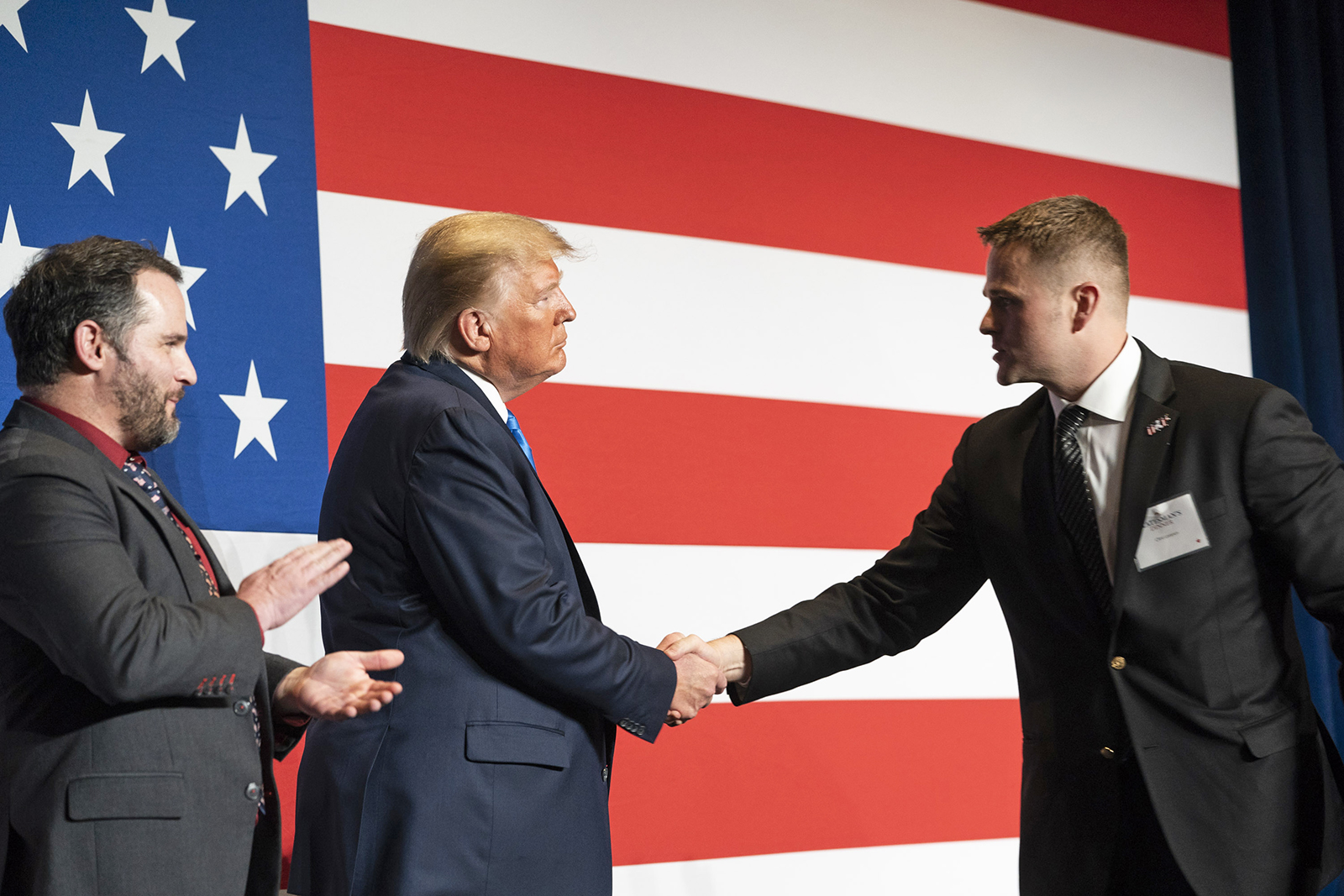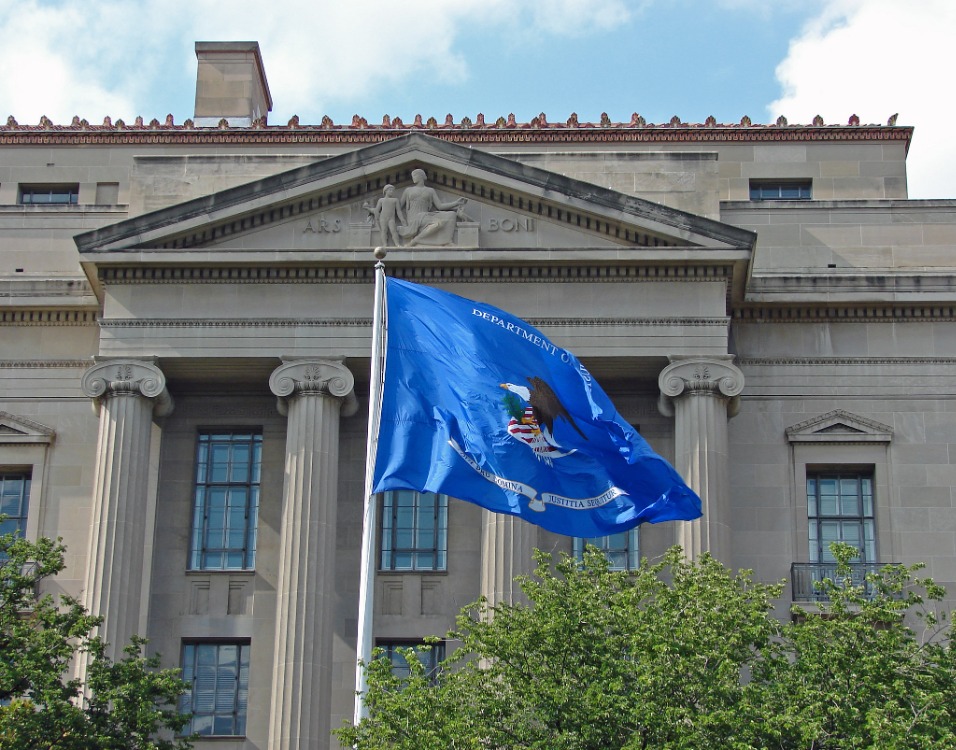Time to Amend the Presidential Pardon Power
President Trump is hardly alone in issuing dubious pardons and grants of clemency. It’s time to talk about a constitutional amendment to limit the pardon power.

President Trump’s commutation of the sentence of former campaign adviser Roger Stone has been widely denounced and again highlights how Trump is willing to use the powers of the presidency to advance his own personal interests at the expense of the public interest. Such a pardon of an associate who had actively lied to federal investigators in order to protect the president would be outrageous in any presidency, but unfortunately it had been long expected in this one. It is all too in keeping with how Trump has conducted himself while he has held the nation’s highest office.
There are many lessons to be learned from the Trump presidency, but one that should not be overlooked is the need to adopt a constitutional amendment to reform the presidential power to grant pardons and reprieves. Trump has personally abused the pardon power. He has repeatedly and publicly floated the idea of pardoning the men, including Stone, who have been caught up in the investigation of the president but kept their silence. He has previously granted clemency to figures such as Rod Blagojevich, Conrad Black, Dinesh D’Souza and Joe Arpaio whose principle commonality was their contempt for the president’s own enemies and legal travails that mirror Trump’s own. He routinely circumvents the informal practices that have helped discipline the presidential process for granting clemency.
But Trump is hardly alone in issuing dubious pardons. Notoriously, George H.W. Bush pardoned former Defense Secretary Casper Weinberger, saving him from charges stemming from the Iran-contra scandal. Bill Clinton pardoned financier Marc Rich, Whitewater investigation resister Susan McDougal and his own half-brother. There is a long history of dubious pardons issued to friends and allies of sitting presidents. As in most things, Trump is particularly crude and brazen, but his pardons share some familial resemblance to those of his predecessors.
Issuing a pardon is one of the few things a president can do without any assistance or accountability. The constitutional Framers were careful to restrict many traditional monarchical powers. Congress, not the president, can declare war. The president must win the agreement of the Senate to appoint officers or enter into binding treaties. But the pardon power can be exercised by the president alone and is not subject to any override.
The Founders thought the pardon power could be safely entrusted to the president. The pardon power represents the possibility of mercy, and the Founders were inclined to clear a path for that. It was a relatively minor power, affecting the fate of individuals but not the nation. But the Framers could still envision the possibility of a president abusing the pardon power. At the Constitutional Convention, sitting Virginia Gov. Edmund Randolph imagined that the president himself or “his own instruments” might be guilty of treason, and so suggested that treason be carved out from the pardon power. During the Virginia ratifying convention, George Mason, author of the Virginia Declaration of Rights, worried that the president “may frequently pardon crimes which were advised by himself.” Nevertheless the Framers thought that, all things considered, entrusting the president with the pardon power was better than the most obvious alternatives.
The Founders also thought they had provided a sufficient tool for dealing with a scoundrel president who would abuse the pardon power. They had entrusted Congress with the power to impeach and remove a president who abused his powers. In Philadelphia, future Supreme Court justice James Wilson assured Randolph that a president who was “himself a party to the guilt ... can be impeached and prosecuted.” As the Virginia ratifying convention, James Madison countered Mason’s worry by observing that “there is one security in this case to which the gentlemen may not have adverted: If the president be connected in any suspicious manner with any persons, and there be grounds to believe he will shelter himself; the house of representatives can impeach him; they can remove him if found guilty.”
We have seen how well that has worked out. The impeachment power has proved to be a paper tiger when it comes to the presidency. With the advent and entrenchment of political parties, many legislators have found their political fate tied to that of the president’s and are loath to vote to impeach or remove him. So now a president willing to abuse the pardon power has little to fear from Congress.
After the Stone clemency order, House Speaker Nancy Pelosi suggested that Congress should find a legislative solution to such abuses of the presidential pardon power, but that is a constitutional nonstarter. The pardon power is given to the president in unconditional terms explicitly in the Constitution itself. There is little that Congress can formally do to restrict the pardon power, short of a constitutional amendment. As Bob Bauer and Jack Goldsmith pointed out, there may be some reform legislation that could be helpful in curbing presidential abuses of the pardon power. But the problems are persistent and fundamental, and statutory efforts are always likely to be inadequate. Which is why a constitutional amendment should be on the table.
An amendment to alter the presidential pardon power should be an easier lift than some other constitutional reforms that might be suggested. It is not the kind of issue that has a clear partisan valence or that has an entrenched interest incentivized to protect the status quo. This is the kind of issue about which it should be possible to win agreement across the political aisle in order to prevent future presidents from abusing the power in the way that past presidents have. Like the 22nd Amendment, which was passed in the wake of Franklin D. Roosevelt violating the long-standing two-term presidency convention, a presidential pardon amendment could be motivated by the recent example of one party’s president, but it would not necessarily play to any party’s future advantage or disadvantage. Like the 22nd Amendment, it would be simple enough to set the operative date for such an amendment to begin with the next presidential term of office so as not to be seen as a swipe at the sitting president.
It would not be easy to eliminate all possibility of abuse from the pardoning power. There are trade-offs to be made, as the Founders themselves recognized. The revolutionary constitutions reacted against the power of the colonial governors by establishing weak state governors. The pardon power was no exception to that pattern. The 1777 New York state constitution, for example, allowed the governor only to suspend the execution of a sentence and left it up to the legislature to make a final determination of whether to issue a pardon. The 1776 Pennsylvania state constitution gave the pardon power to an executive council. The governor of Virginia could grant a pardon only with the advice of the Council of State. The majority at the Constitutional Convention thought that such mechanisms politicized pardons and put them at the whim of elections. A single, responsible chief magistrate, they hoped, could grant mercy in a more deliberate manner, and if necessary the president could be called to task in an impeachment inquiry if he abused that power.
Unfortunately, experience has suggested that the Founders leaned too far in favor of the president. The Framers in Philadelphia built a relatively strong chief executive, and the president’s unchecked pardon power was part of that design. American state constitutions written since 1787 have often borrowed from the federal example, but the president’s pardon power is one that states have generally rejected. In the current Texas constitution, the governor can pardon, but only after the conviction of the individual to be pardoned and a board of pardons and paroles recommends the pardon. The California constitution empowers the legislature to create application procedures for a gubernatorial pardon and requires that all pardons be reported to the legislature, along with a statement that explains the reason for granting it. The Kansas constitution goes further and gives the governor a pardon power only “under regulations and restrictions prescribed by law.” When it comes to drafting a potential amendment, there are off-the-shelf models that can be drawn from the states for reforming the federal pardon power.
The provisions of constitutions often reflect the government abuses of the recent past. The federal Bill of Rights singles out the quartering of troops in private homes because that was an experience still vivid in the minds of the founding generation. The 14th Amendment reflects the Republican revulsion at the post-Civil War black codes in the South. The 22nd Amendment responds to Franklin Roosevelt’s example of a president unwilling to follow Washington’s model and step down and cede power. The 25th Amendment reacts to the frightening experience of a White House with no clear chain of command after Dwight Eisenhower’s heart attack and subsequent stroke and the shocking death of John F. Kennedy that could easily have been lingering rather than sudden.
We have seen a train of abuses of the pardon power. Future such abuses could be remedied through a bipartisan constitutional amendment. It is a straightforward matter to make it explicit that a president cannot pardon himself, and it should not be hard to take pardons of immediate family members off the table as well. It should also not be difficult to require that pardons be issued only after conviction, or that pardons cannot be issued during the lame-duck period after a presidential election and before a president-elect has been inaugurated. It is possible to entrench into the constitutional text a process for considering pardons, so that presidents in the future cannot bypass the Department of Justice and issue pardons based on personal appeals by friends, family and television news hosts. It would be possible to require others to sign off on the pardon, whether existing members of the president’s Cabinet or a new body like a pardon and parole board. It would be possible to make pardons conditional on a congressional vote, perhaps comparable to the vote to override a presidential veto of legislation. If Congress and then 38 states so decided, it would even be possible to give Speaker Pelosi the power she wrongly asserts that she already has and allow Congress to subject the pardon power to statutory regulation.
There are pros and cons to any reform of the pardon power, but Congress has examples and experience with which to work. Trade-offs and compromises would have to be made, but there is no good reason why this issue would have to get bogged down in partisan disagreements (though that does not always stop us). Both Republicans and Democrats can point to past abuses of the presidential pardon that they do not like, and both should be able to foresee the possibility of future abuses that they would not like. The presidential pardon power is not the most important issue facing the country, but it is a fixable one. It is time for Congress to consider drafting a remedy to a problem and not just complain about it.





